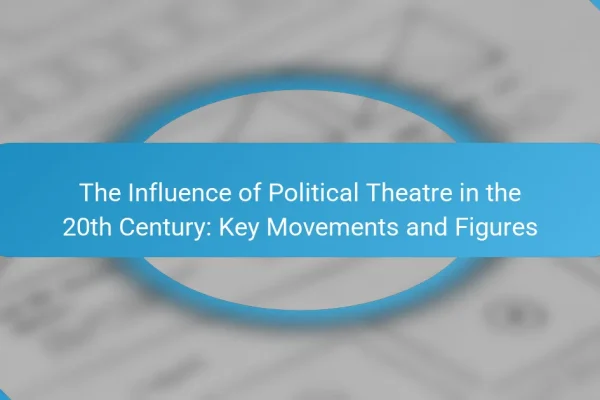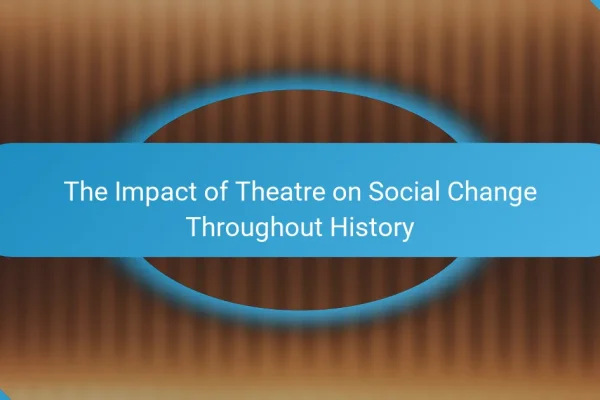
The Development of Theatre Technology: Innovations and Their Effects on Performance
The article focuses on the development of theatre technology, highlighting advancements in tools and techniques that enhance theatrical productions. Key innovations include gas and electric lighting, sound technology such as microphones and amplifiers, digital projections, and automated stage mechanics. These technologies improve visibility, auditory experiences, and storytelling possibilities, significantly impacting audience engagement and production efficiency….








